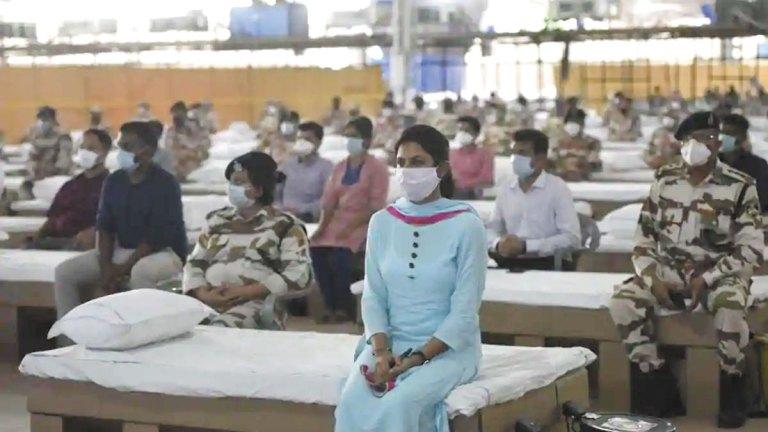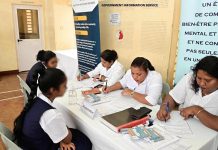Africa-Press – Mauritius. According to the Johns Hopkins University’s tracker as at July 1, there are about 10.5 million Covid-19 cases and nearly 511, 000 people have died due to the disease across the world. In India the comparable figures from the Union Health Ministry data are 585,000 and the death toll 17,400.
In absolute numbers these figures may look alarming, but when we look at the US, for example, with four times less population there are over 2.5 million confirmed cases and nearly 126,000 deaths.
Nevertheless, as India is the fourth worst-hit country in the world, the authorities are taking no chances and are ramping up testing in all States and especially in the most affected ones which are Delhi and Maharashtra.
Besides, in order to cope with the increasing demand for hospital beds to treat patients who need admission, hotels and even private clubs have been taken on board to put their facilities at the disposal of the State government.
A number of other developments are under way as part of the ongoing measures to control the transmission of the virus. These include India’s first Covid-19 vaccine candidate by Bharat Biotech Ltd, named Covaxin, which has received the central drugs controller’s approval for human clinical trials.
Prime Minister Narendra Modi on Tuesday reviewed India’s preparations for vaccinating its population against the coronavirus disease (Covid-19) once a vaccine becomes available, and said vaccination must be affordable and universal as he directed officials to start work on a detailed plan for carrying out the exercise and review preparations in place.
It may be noted here that the Serum Institute of India Pvt. Ltd. , based in Pune Maharashtra, is the world’s largest vaccine manufacturer by number of doses produced and sold globally (more than 1.5 billion doses).
Vaccines manufactured by the Serum Institute are accredited by the World Health Organization, Geneva and are being used in around 170 countries across the globe in their national immunization programs, saving millions of lives throughout the world.
On the other hand, the Union Health Ministry has revised the guidelines for blood transfusion to include the collection of convalescent plasma under the protocol of the clinical trial from people who have recovered from infection by the Sars-CoV-2 virus, which causes the coronavirus disease.
The important point to retain is that all the treatment modalities are being carried out within the framework of strict guidelines and protocols (and clinical trials where these are being carried out), and they are constantly reviewed and updated as new findings and recommendations come up from different studies around the world, and are evaluated in the local context and weighed against local experience.
A major recent development has been the operationalisation of a Covid facility in South Delhi’s Chhatarpur area. Probably the largest Covid temporary hospital in the world, it has been named Sardar Patel Covid Care Centre and Hospital.
It has been built on a staggering lot equal to 22 football fields, located on grounds belonging to the Sikh spiritual organization Radha Soami Beas in Chhatarpur. The facts and figures about this hospital are simple staggering:
The Centre is being set up by the Delhi government for treating mild and asymptomatic patients, in particular for people who are asymptomatic but cannot afford home isolation. It will also be attached to hospitals, in case any patient’s condition deteriorates and requires access to urgent higher scale hospital facilities.
In several interviews aired in the media since the beginning of the pandemic in India, Dr Randeep Guleria, Director of the All India Institute of Medical Sciences, New Delhi, has given a very objective, balanced, realistic and reassuring picture of the evolving situation in India.
In so doing he has also taken a broad overview of what is happening around the world and explained how the specificities of the Indian health, medical and epidemiological contexts are contributing to the robustness of the Indian response, which has so far been able to maintain a low fatality rate of 3% and a recovery rate that is nearing 60%.
This new Covid mega-facility comes at a time when it is most needed, and may well be a model for replication elsewhere in India if the situation so demands. RN Gopee ngopee@intnet. mu
For More News And Analysis About Mauritius Follow Africa-Press







